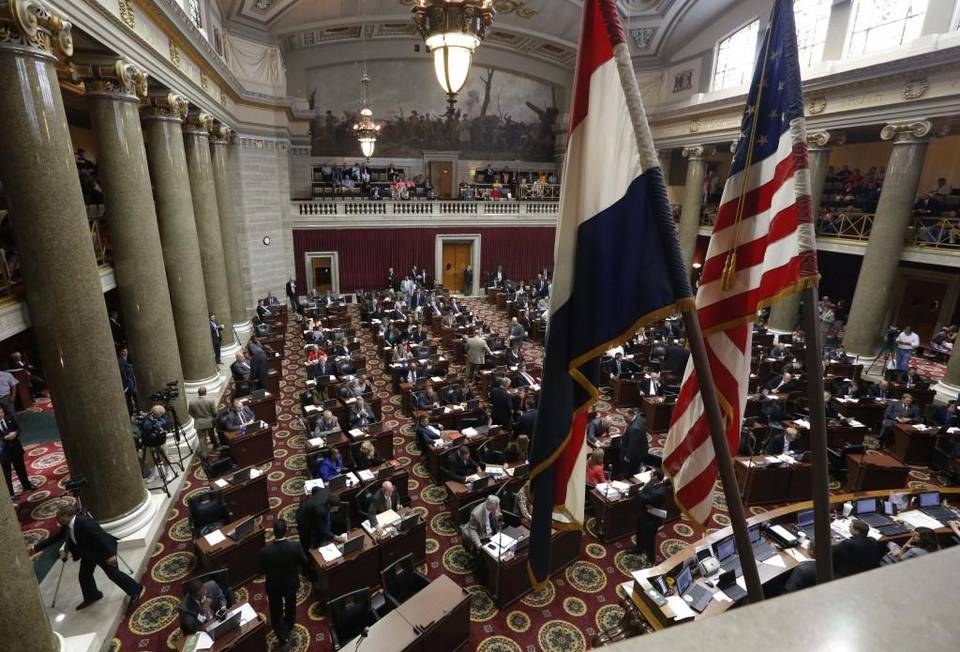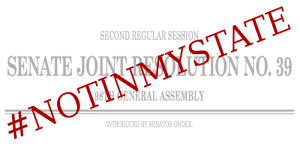
 Being a citizen of the United States guarantees a person certain freedoms that are bestowed upon them at birth. These are values that we learn in our fifth grade history classes: the right to life, liberty, and the pursuit of happiness. However, the reality of our nation is that we are still a patchwork of civil rights with certain states welcoming all and other states bristling at the thought of those who do not conform to their ideals.
Being a citizen of the United States guarantees a person certain freedoms that are bestowed upon them at birth. These are values that we learn in our fifth grade history classes: the right to life, liberty, and the pursuit of happiness. However, the reality of our nation is that we are still a patchwork of civil rights with certain states welcoming all and other states bristling at the thought of those who do not conform to their ideals.
Missouri has recently come into the national news for their controversial religious liberty bill being proposed in the Senate. The bill, SJR 39, would make it legal for religious individuals and corporations to deny services and public accommodations to people if they feel that it interferes with their religious liberties. While vague in wording, the bill is aimed at people and institutions who oppose those of diverse sexual orientations and gender identities. For reasons both economic and moral, SJR 39 would be devastating to the state of Missouri.
From a purely economic standpoint, religious liberty bills do not fare well for a state. An article from The Washington Post, published on March 29, 2016, details this with the headline, “Missouri’s religious liberty bill could cost millions in economic activity.…” The article goes on to explain that the passing of this bill could cost the state more than $50 million annually, especially when considering the sports business that takes place in Missouri. Organizations are less likely to host business events in a state that does not reflect their corporate anti-discrimination policies, leading to millions of dollars in lost business. This can be evidenced in states like Indiana and West Virginia, both of whom received extreme negative publicity for their proposed religious freedom laws. Indiana came under fire from major organizations like the NCAA and Angie’s List, losing enormous amounts of money in the process. West Virginia ended up voting down a bill that was similar to the one proposed in Missouri when Marriott and AT&T vocally opposed the bill. There is no example to date where a state has prospered as a result of a religious liberty bill, and Missouri would likely be no exception.
While the economic impact is important, there is more than just the lost of revenue at stake. Sarah Rossi, director of advocacy and policy for the ACLU of Missouri told The Kansas City Star that, “It’s not just dollars and cents. It’s people’s lives.”
This bill also sends the message to Missourians everywhere that they are not wanted in this state if they are of a diverse sexual orientation or gender identity. SJR 39 seeks only to openly allow discrimination against those who already experience enough undue hardship.
Rep. Mike Colona, a Democratic representative from St. Louis, detailed this in a quote to The Kansas City Star.
“At its core, SJR39 seeks to create a constitutional right to be mean to certain people based on who they love,” said Rep. Colona. “Freedom of religion must be respected and accommodated, but it cannot be used as an excuse to deny others the right to be treated with basic human dignity.”
At its root, SJR 39 seeks to do just that, deny basic human dignity to citizens of Missouri based on who they are or who they love. Missouri cannot revoke the values that all citizens are granted and allow hate in our state. It is time for Missouri to defy discrimination and stand up for what is right, once and for all.